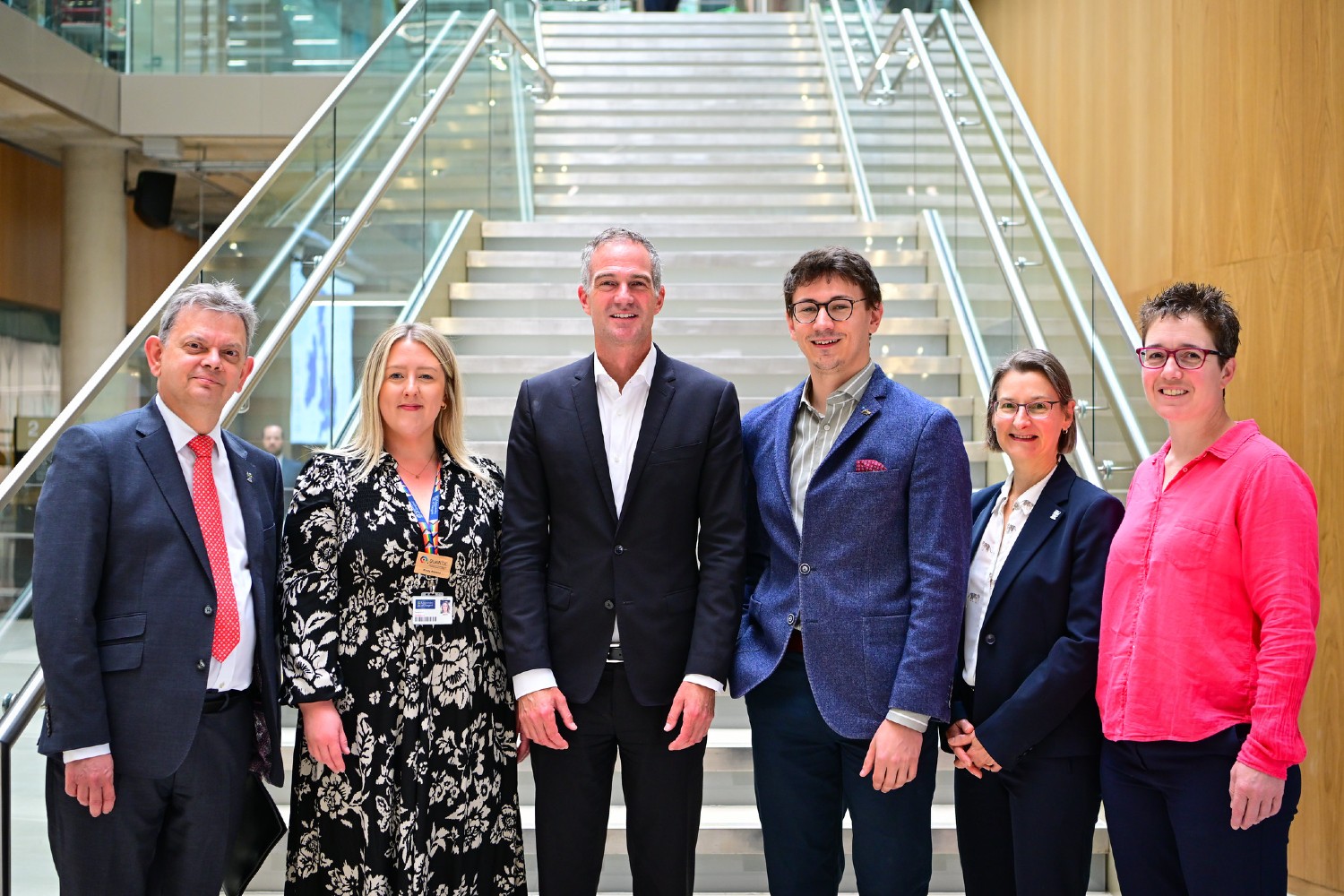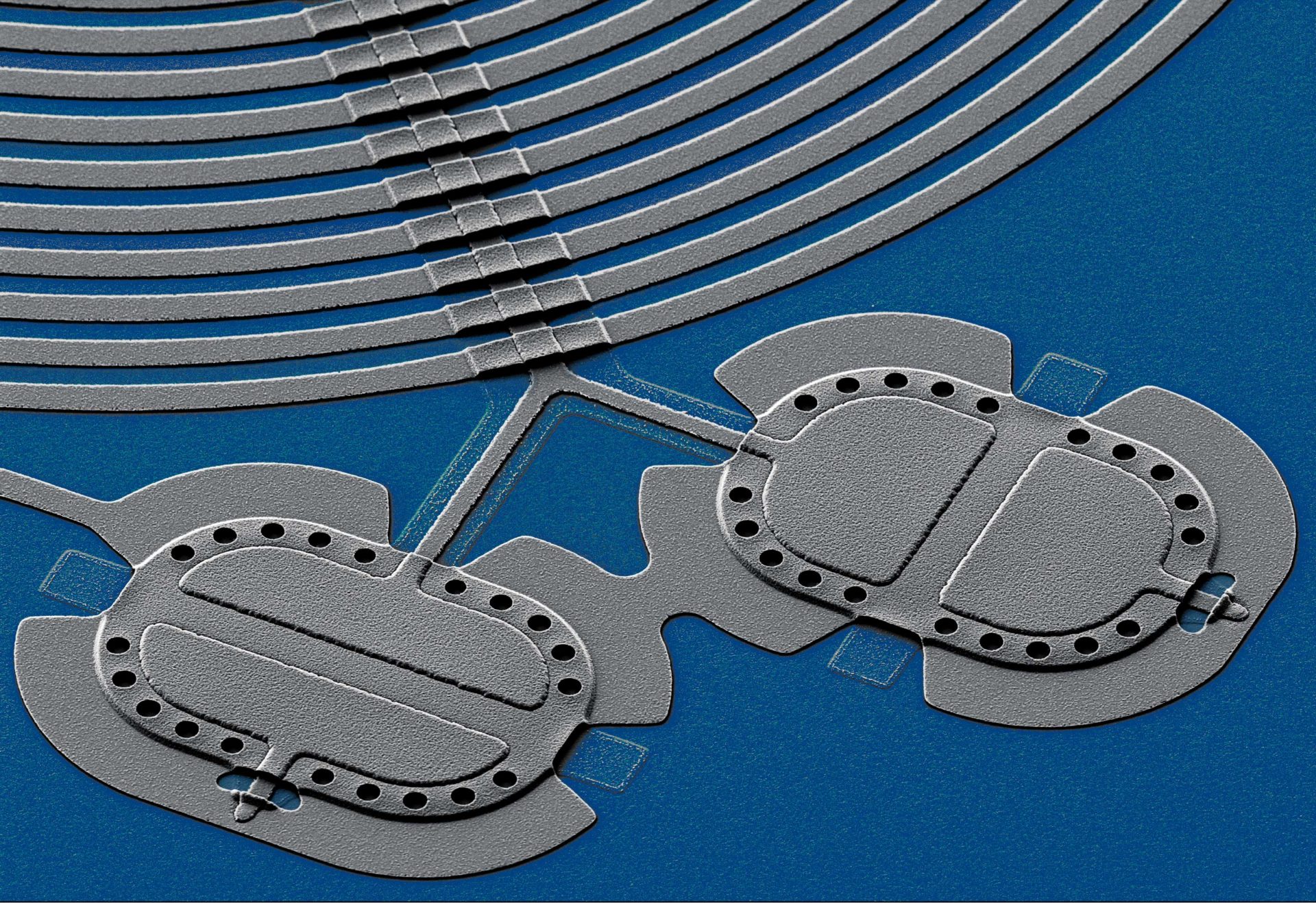The UK Quantum Technology Research Hub in Sensing, Imaging and Timing (QuSIT), led by the University of Birmingham, has been selected as one of five Hubs to be delivered by UKRI Engineering and Physical Sciences Research Council (EPSRC) as part of a £160 million investment, announced today by Science Secretary Peter Kyle.
QuSIT – a collaboration of expert physicists, engineers and data scientists from the Universities of Birmingham, Glasgow, Bristol, Durham, Heriot-Watt, Imperial, Nottingham, Southampton and Strathclyde, as well as the British Geological Survey and NPL – will formally launch in December 2024, with a focus on overcoming the main research barriers to scale up and manufacture quantum sensing, imaging and timing devices. Examples of this new technology include cameras to detect gas leaks and hidden objects, quantum brain scanners to enhance investigation of brain health disorders and epilepsy, and quantum sensing of gravity and magnetic fields to help increase resilience and capacity of critical infrastructure.
QuSIT will bring together expertise from the UK Quantum Technology Hub in Sensing and Timing, the imaging Hub QuantIC, and the wider academic community. QuSIT will also draw together industry, academia and government to leverage the power of quantum sensing, imaging and timing to help address challenges in healthcare, infrastructure, transportation, and security, enabling a safer, healthier, and more sustainable society.
“We are delighted to form a new Quantum Technology Hub in sensing. Our aim is to accelerate the commercial development of quantum sensing, imaging and timing devices, which will result in real societal and economic benefits. We look forward to working closely with our partners, the other new QT Hubs, our funders UKRI-EPSRC and the National Institute for Health and Care Research (NIHR) as well as the wider academic and industry communities to ensure quantum technologies deliver their best for society.”Professor Michael Holynski, Principal Investigator for QuSIT
Quantum technologies harness quantum physics to gain a functionality or performance which is otherwise unattainable, deriving from science which cannot be explained by classical physics such as Newton’s laws of motion or thermodynamics.
The Hubs are delivered by the UKRI Engineering and Physical Sciences Research Council (EPSRC), with a £106 million investment from EPSRC, the UKRI Biotechnology and Biological Research Council, UKRI Medical Research Council, and the National Institute for Health and Care Research. Industry collaboration is a key element to all of the hubs, which leverage significant cash and in-kind contributions from partners worth more than £54 million.
“Technologies harnessing quantum properties will provide unparalleled power and capacity for analysis at a molecular level, with truly revolutionary possibilities across everything from healthcare to infrastructure and computing. The five Quantum Technology Hubs announced today will harness the UK’s expertise to foster innovation, support growth and ensure that we capitalise on the profound opportunities of this transformative technology.”EPSRC Executive Chair Professor Charlotte Deane
The new Hubs continue the work of the UK National Quantum Technologies Programme. Now in its tenth year, the partnership of more than £1 billion between government, academia and industry, fast-tracks quantum knowledge from laboratory to wider society and economic impact.
They are a key component of the UK National Quantum Strategy, which outlines an investment of £2.5 billion of government funding in quantum R&D in the next ten years.
The post New Hub focussing on quantum sensing, imaging and timing to be launched as part of £160 million investment appeared first on Quantum Sensors.



